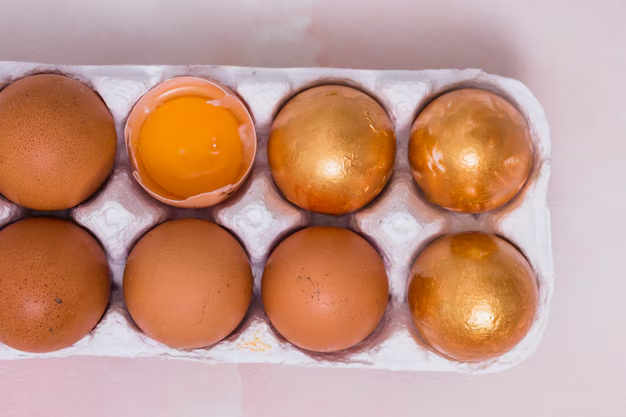How Long Do Your Boiled Eggs Last in the Fridge? Insights for Optimal Storage 🥚
There’s something undeniably satisfying about a perfectly boiled egg. Whether it’s the creamy richness that complements a salad or the savory delight on your breakfast toast, boiled eggs are a versatile delight. But once cooked, how long can you keep your boiled eggs in the refrigerator before they’re no longer safe or appetizing to consume? Let’s delve into this frequently pondered question from the realm of food storage and shelf life.
Understanding Boiled Egg Shelf Life
Fresh vs. Boiled: The Crucial Differences
Fresh eggs have a protective coating called the cuticle, which helps them last longer when kept in the fridge. However, once boiled, this protective barrier is removed, leaving boiled eggs more susceptible to bacteria and spoilage. This means that boiled eggs have a shorter shelf life compared to their fresh counterparts.
General Guidelines for Refrigerated Boiled Eggs
The longevity of boiled eggs largely depends on proper storage. Typically, boiled eggs can safely be stored in the refrigerator for up to one week. To ensure optimum freshness and safety, adhere to the following practices:
- Temperature Control: Store boiled eggs at or below 40°F (4°C).
- Containment: Maintain them in an air-tight container to reduce exposure to oxygen and contaminants.
- Labeling: Note the date of boiling on the container for easy monitoring.
Tips for Storing Boiled Eggs
The Role of the Shell
The shell acts as a modest defense against bacteria. Unpeeled boiled eggs generally last longer because the shell offers extra protection. If peeled, consume the eggs within four to five days for the best freshness.
Positioning in the Fridge
Place your eggs in the main body of the refrigerator rather than the door. This ensures a more consistent, cool temperature, avoiding the variable warmth each time the door is opened.
Signs Your Boiled Eggs Have Gone Bad
Being able to recognize the signs that your boiled eggs have expired could save you from unpleasant culinary experiences or foodborne illnesses. Here’s what to look out for:
- Unpleasant Odor: The most prominent indicator is smell. If the boiled egg emits a sulfur-like or rancid odor, it’s time to toss it.
- Discoloration: Look for any unusual color changes. An egg white or yolk turning gray or displaying dark spots points to spoilage.
- Texture Changes: Rubbery whites or hardened, tough yolks might indicate they’ve been stored too long.
Best Practices for Boiled Egg Preparation
Cooking and Cooling
For safe consumption and storage:
- Boil Time: Ensure eggs are boiled completely, typically about 9-12 minutes depending on size and desired firmness.
- Cooling: Once boiled, plunge eggs into an ice bath to cool them swiftly. This rapid cooling halts further cooking, facilitating easier peeling and preservation.
Safe Storage Environment
To maintain the freshness of your boiled eggs:
- Keep them in a moisture-free, sealed container.
- Store them away from strong-smelling foods which they might absorb odors from.
Related Subtopics
Egg-Centric Culinary Ideas
Boiled eggs serve as a base ingredient for various recipes. Here are a few favorites to try:
- Egg Salad: Mash your boiled eggs with a dash of mayonnaise, mustard, and chopped herbs for a simple sandwich filling.
- Deviled Eggs: Elevate your snack game by mixing boiled egg yolks with spices and piping them back into the whites.
- Ramen Topping: Slice them in halves or quarters and top off some warm ramen for an authentic touch.
Exploring Food Safety with Boiled Eggs
Preventing Cross-Contamination:
- Always use clean utensils and surfaces when peeling or cutting boiled eggs.
- Handle eggs gently to avoid cracking shells prematurely if they’re still unpeeled for future storage.
Nutritional Profile: Boiled eggs are not only practical but nutritious, offering protein, vitamins, and minerals while being low in calories. They can play a significant role in a balanced diet whether as part of meals or standalone snacks.
📝 Key Takeaways: Storing Boiled Eggs
- Storage Timeline: Boiled eggs last up to a week in the fridge if stored properly.
- Unpeeled vs. Peeled: Leave the shell on for a longer shelf life; consume within a few days if peeled.
- Stay Cool: Place eggs in the main fridge compartment to avoid temperature drops.
- Spoilage Signs: Discard if there's a foul smell or discoloration.
Understanding how to appropriately store and monitor your boiled eggs ensures that you’re always consuming your eggs at their peak freshness while minimizing waste. Remember, when in doubt, a quick sniff and visual check are reliable initial tests. With these insights, you’re now well-armed to keep indulging in the boiled egg's delectable goodness with peace of mind. 🥚✨

